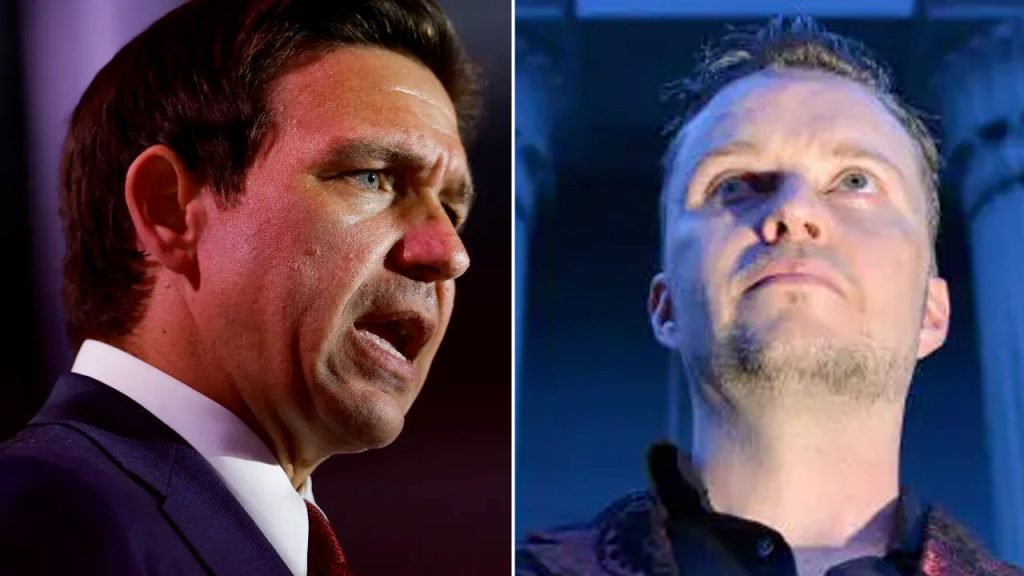The Satanic Temple’s co-founder challenged Florida Gov. Ron DeSantis to a debate on religious freedom after DeSantis singled out satanists by saying they were not allowed to participate in a new chaplain program signed into law. The bill allows school districts to adopt volunteer school chaplain services, with each school having the option to adopt a policy allowing volunteer chaplains to provide support services and programs for students. DeSantis stressed that the program was voluntary for parents and students, and stated that members of TST would not be able to serve as public school chaplains, citing that satanists were “not a religion” and were not qualified to participate in the program. As the bill progressed through the legislative process, TST threatened to sue the state if its members were banned from serving as chaplains.
TST co-founder, Lucien Greaves, criticized DeSantis for making comments about the organization without knowing who they are or what they believe. Greaves expressed concern over the lack of legal theory to support DeSantis’ view that satanists were disqualified from the school chaplaincy program under the new law. He also mentioned that the bill signed by DeSantis does allow for Satanic chaplains in schools, indicating that the governor may not fully understand the limits of his authority. Greaves pointed out that the IRS recognizes TST as a tax-exempt church and suggested that excluding the group from the school chaplain program could result in discrimination that would likely fail in court.
After the comments made by DeSantis, Greaves posted on social media about the IRS recognition of TST as a tax-exempt church, indicating that discriminatory actions against them could fail in court. The executive director of operations at TST, Rachel Chambliss, invited DeSantis to participate in a public debate with Greaves regarding their status as a federally recognized religious organization. Chambliss stated that a public debate would provide a platform to thoroughly discuss the principles of religious freedom in America. DeSantis’ office did not respond to requests for comment on the matter, and Greaves criticized the governor’s actions as erroneous, suggesting that DeSantis may be engaging in empty grandstanding.
The conflict between TST and DeSantis highlights the debate over religious freedom in Florida and the rights of minority religious groups such as satanists. Greaves’ challenge to DeSantis for a public debate on the matter reflects TST’s desire to defend their status as a federally recognized religious organization and ensure their ability to participate in programs such as the school chaplain program. However, DeSantis’ refusal to respond to the invitation and his comments about satanists not being qualified to participate in the program raise questions about the governor’s understanding of religious freedoms and the law. The outcome of this conflict may have broader implications for the protection of minority religious groups’ rights in Florida and beyond.


